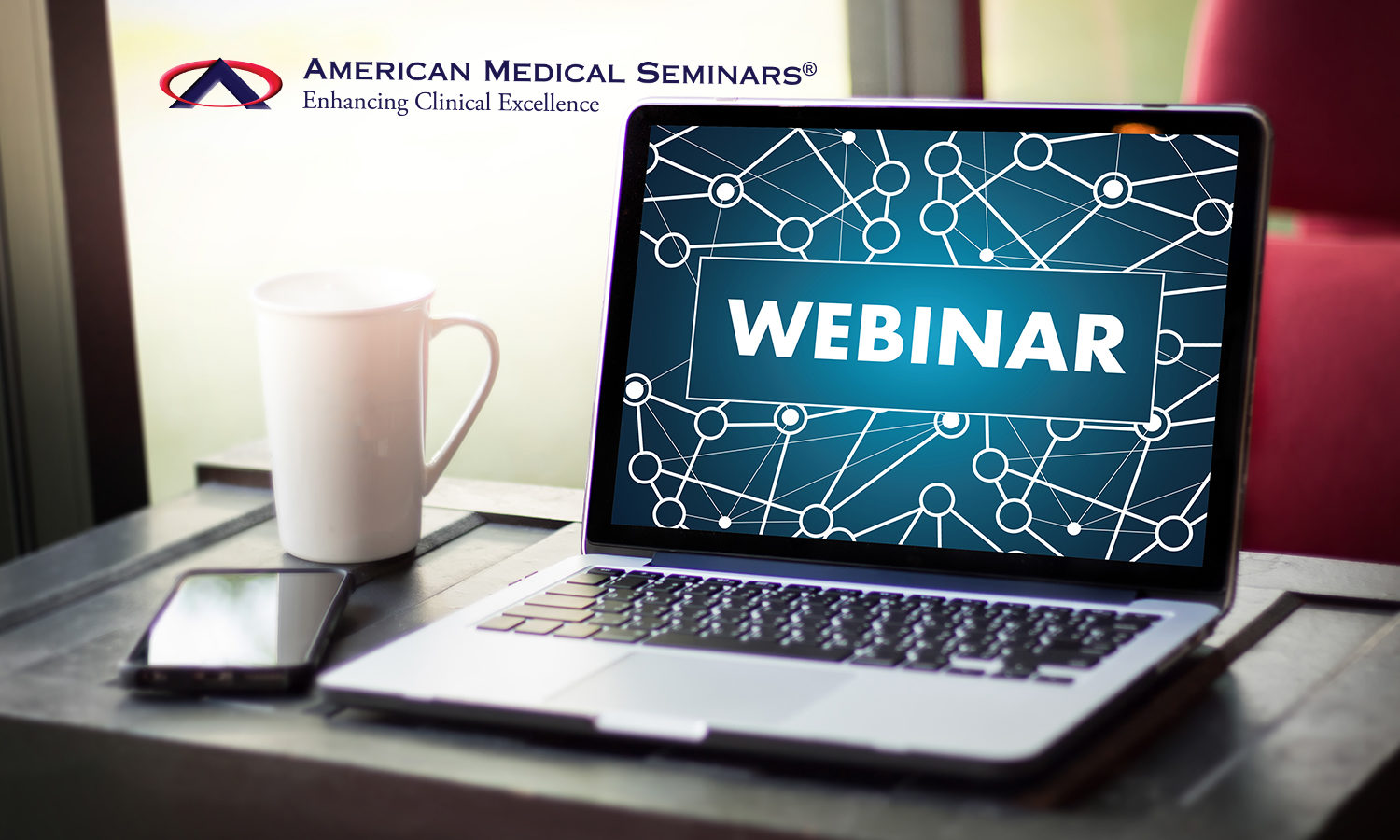| Internal Medicine: A Practical Approach to Common Endocrinology, Cardiology, and Pulmonary Issues |
| Mon Sep 28, 2020 - Wed Sep 30, 2020 |
| 7:30am-12:50pm |
| Online, |
| SEMLA-webinar-im-09282020 |
| Webinar: 29961 |
|

Presented By
Presenter
-
Valerianna Amorosa (Learn More)

Professor of Clinical Medicine, Perelman School of Medicine at the University of Pennsylvania; She practices inpatient and outpatient medicine at Penn and the Philadelphia VA. She is medical director of Penn home infusion therapy and home health -
John Bielinski, Jr. MS, PAC (Learn More)

John Bielinski, Jr. John holds a master of science in emergency and family medicine and actively works as a physician assistant in Western New York. -
Ganesan Murali, M.D. (Learn More)

Attending Physician, Division of Pulmonary, Critical Care and Sleep Medicine, Lehigh Valley Health Care Network, Allentown, PA -
Merri Lou Pendergrass, M.D., Ph.D. (Learn More)

Professor of Medicine, Clinical Chief of Endocrinology, and Director of the Diabetes Program, University of Arizona College of Medicine, Tucson, AZ
Course Outline
Day 1
Update on the Management of COPD and Asthma.
Upon completion of this session, the participant should be able to: COMP, GL, EBM
- Differentiate the treatment of acute COPD from other pulmonary diseases.
- Perform initial management and stabilization of the patient with asthma or COPD exacerbation and distinguish between the strategies for each condition.
- Develop an evidence-based strategy for the management of COPD based on the GOLD criteria.
- Detect conditions that may mimic asthma or COPD in the clinical setting.
COVID.
Upon completion of this session, the participant should be able to: GL, COMP
- Understand research and updates on the SARS-CoV-2 virus compared to when first cases were documented in the US.
- Review of guidelines and the most viable treatment options with patients with COVID-19.
- Managing patients in the home during a pandemic.
Prevention of Type 2 Diabetes/Treatment of Obesity.
Upon completion of this session, the participant should be able to: GL, COMP
- Recognize patients with pre-diabetes.
- Employ current Guidelines and recommendations regarding diabetes prevention.
- Describe properties of currently available medications for obesity, their adverse effect profile, and how to incorporate them as part of an effective obesity treatment program.
Treatment of Hyperglycemia in Type 2 Diabetes (Non-Insulin)
Upon completion of this session, the participant should be able to: EBM, GL, COMP
- Understand the glucose targets in T2DM.
- Employ the current ADA Guidelines for pharmacological therapy.
- Develop individualized therapeutic regimens to optimize glycemic control.
Treatment of Hyperglycemia in Type 2 Diabetes (Insulin)
Upon completion of this session, the participant should be able to: EBM, GL, COMP
- Recognize indications for the initiation of insulin replacement therapy for people with T2DM.
- Describe clinically relevant properties of the available insulins and insulin combinations.
Individualize and advance insulin therapy to optimize glycemic control.
Day 2
Pulmonary Embolism
Upon completion of this session, the participant should be able to:
- Analyze the scope of the problem of thromboembolic disease in the ED.
- Employ the latest diagnostic algorithms and adjuncts available to aid the clinician in the diagnosis of thromboembolic disease.
- Appraise the evidence-based treatment of thromboembolic disease based on the latest applicable literature and apply applicable ACEP Guidelines.
Syncope: Evaluation, Diagnosis and Management
Upon completion of this session, the participant should be able to: GL, COMP
- Describe the pathophysiology of syncope
- Differentiate between various causes of syncope
- Develop a diagnostic algorithm for the evaluation of syncope as per the 2017 ACC Guidelines
- Employ management strategies for patients presenting with syncope
Peri-Operative Cardiac Evaluation.
Upon completion of this session, the participant should be able to: EBM, GL, COMP
- Formulate guideline-based strategies for peri-operative risk evaluation.
- Relate peri-operative cardiovascular physiology.
- Appraise evidence behind recommendations.
- Prescribe peri-operative risk reduction strategies.
Common Endocrine Disorders.
Upon completion of this session, the participant should be able to: EBM, GL, COMP
- Recognize, evaluate and treat common endocrine abnormalities and employ Endo Society Guidelines to include:
- Hypoglycemia,
- Hypercalcemia,
- Low testosterone,
- Adrenal masses.
Thyroid Disease
Upon completion of this session, the participant should be able to: GL, EBM. COMP
- Individualize evaluation and management options for
- Review evaluation and treatment options for hyperthyroidism.
- Review current guidelines describing the evaluation and management of thyroid nodules.
Day 3
Differential Diagnosis of Chest Pain.
Upon completion of this session, the participant should be able to: EBM, GL, COMP
- Assess for and identify causes of chest pain.
- Describe the pathophysiology of chest pain.
- Differentiate the clinical features of various causes of chest pain.
- Employ the ACCF/AHA Guideline based management strategies for chest pain.
- Identify patients who will benefit from device therapy.
- Recognize when to refer patients for more advanced cardiac care.
Preventing Burnout in Medicine.
Upon completion of this session, the participant should be able to: COMP
- Integrate effective communication skills such as active listening, reframing, and validation into daily interactions with patients, improving overall communication and the quality of care.
- Review current literature re: burnout.
- Adopt strategies for successful patient experience surveys.
- Apply techniques for managing functional symptoms in the office.
Diabetes Technology.
Upon completion of this session, the participant should be able to: GL, COMP
- Discuss new trends and hot topics in diabetes technology.
- Recognize and identify clinical scenarios where the use of newer technology, such as insulin pumps and/or continuous glucose monitors, may be indicated to support insulin replacement therapy
- Discuss how new technologies, such as insulin pumps and continuous glucose monitors, are incorporated into routine practice.
- Describe potential risks and benefits of available nonprescription diabetes management technologies
Transgender Care.
Upon completion of this session, the participant should be able to: GL, COMP
- Identify the differences between sex, gender identity, sexual preference and gender expression and be able to use the appropriate terminology.
- Describe how to safely and effectively utilize masculinizing and feminizing hormonal treatments for appropriate patients.
- Assess the components of, expected changes, time line and outcomes of cross hormone therapy.
Common Cases Walking Through Your Office Door.
Clinical Cases will be solicited throughout the week from the participants. These cases will be selected and managed by the presenters. Diagnoses, next steps in management and expected clinical outcomes will be discussed. The format will include panel discussion and audience participation.
Accreditation
This program is not yet approved for CME credit.




